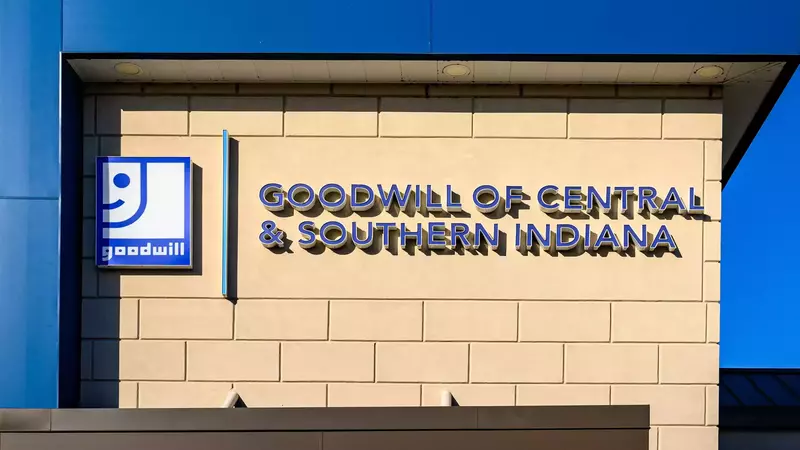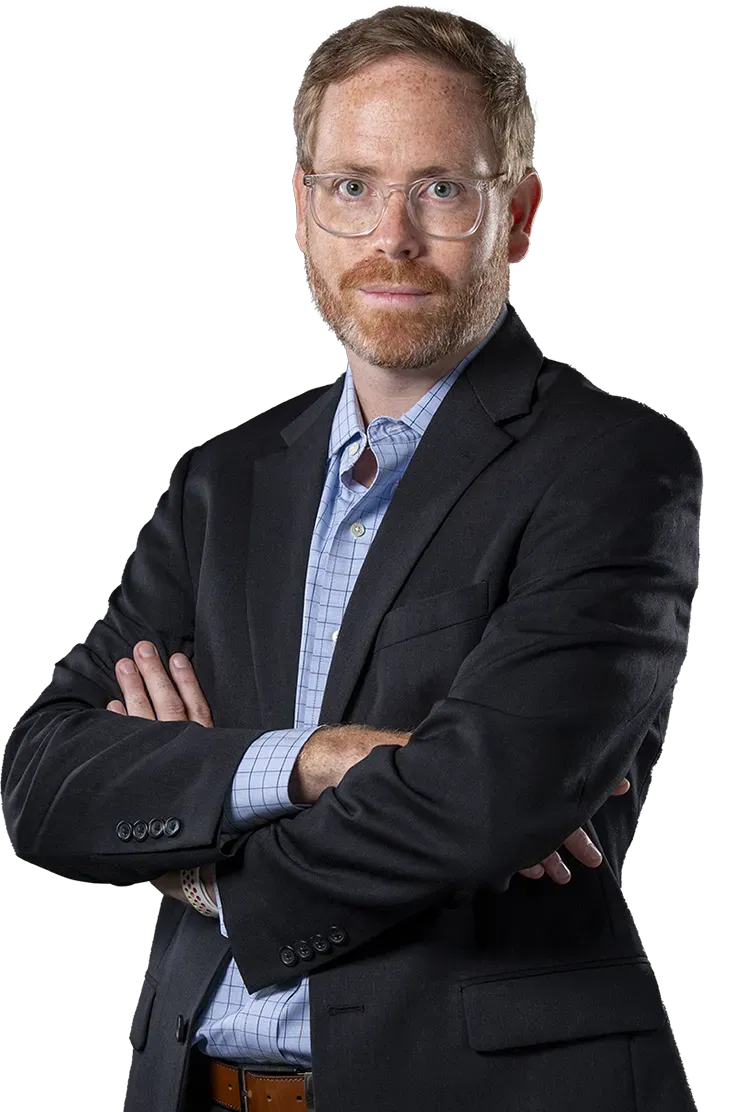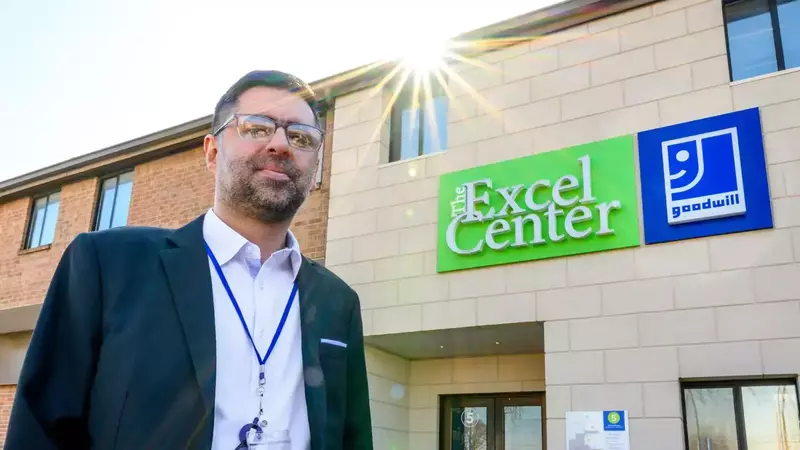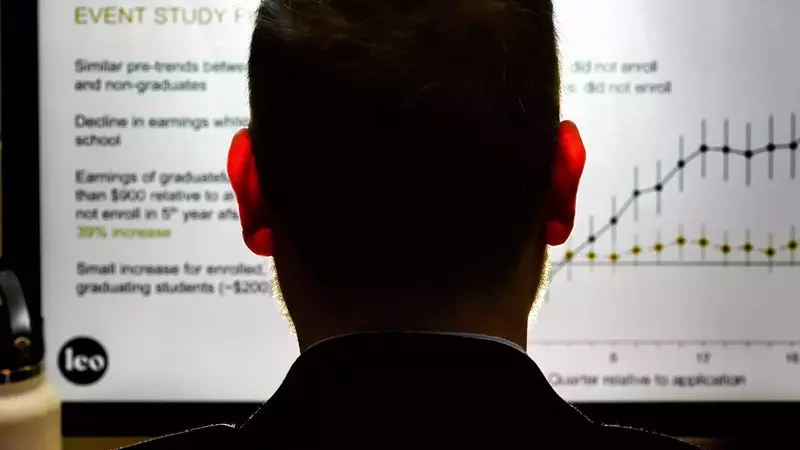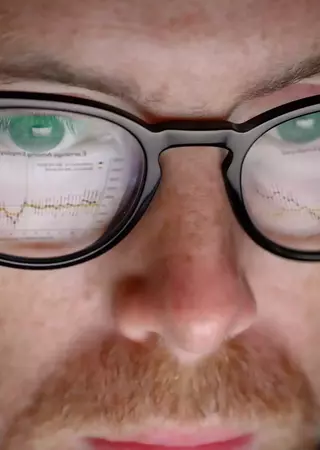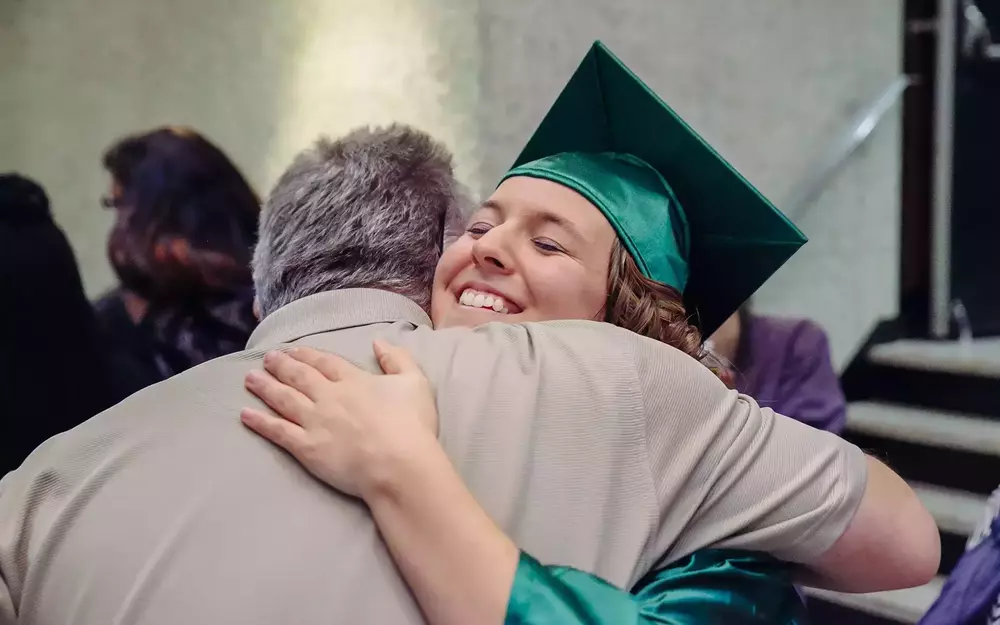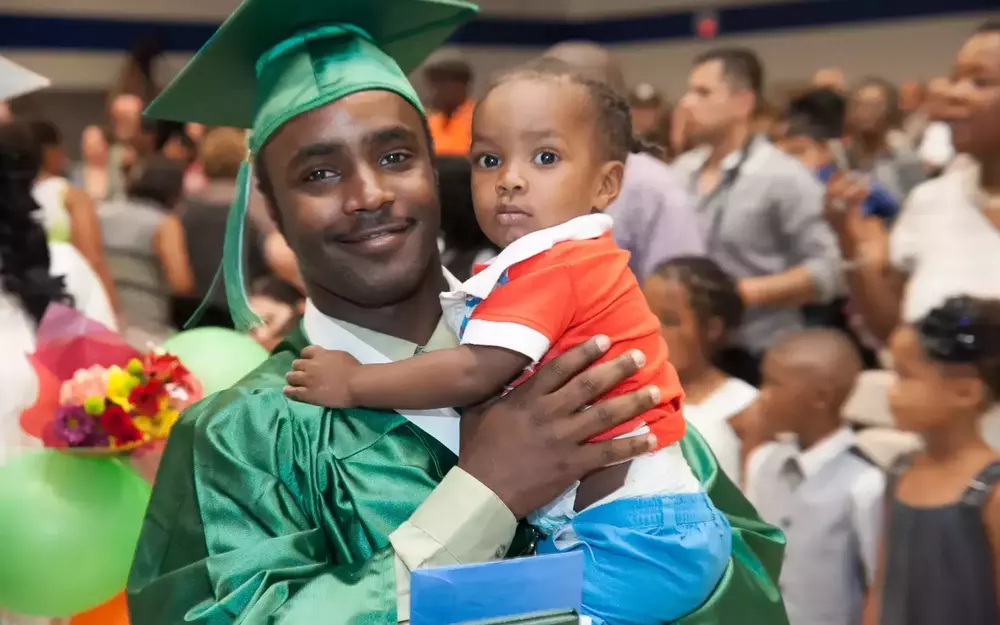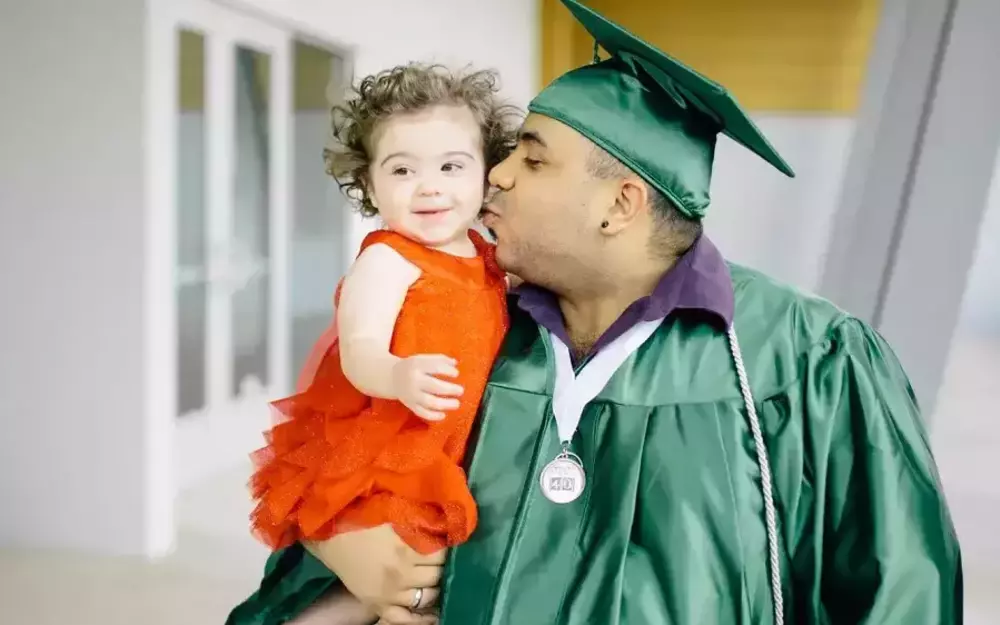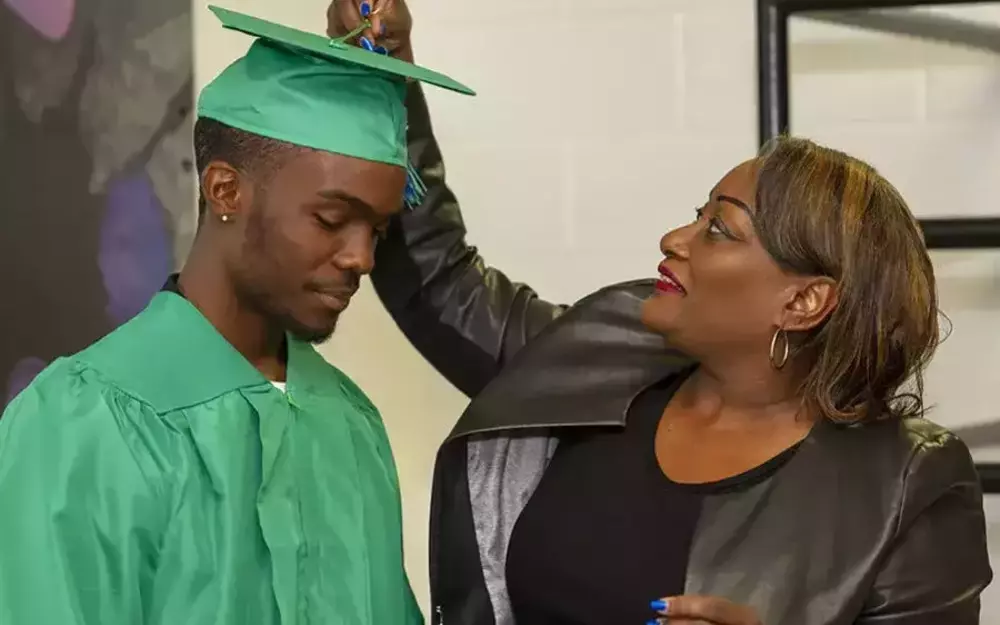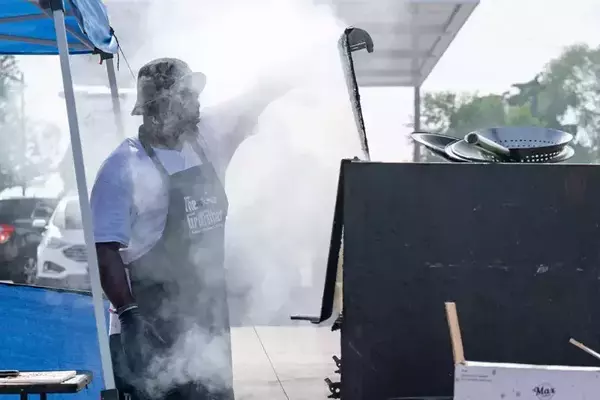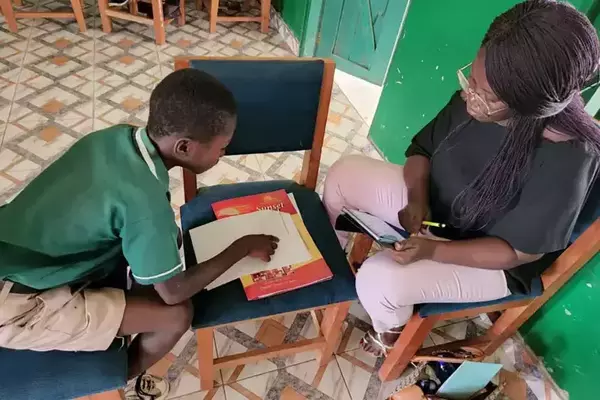In Phoenix, Arizona, six high school graduates cross the stage in caps and gowns. They don’t look like high school graduates—all are well over 18 years old, and each person missed the opportunity to graduate on time for one reason or another. Just a few years ago, these six adults never would have had this opportunity, this moment. But thanks to Goodwill and with support from Notre Dame, these six graduates, along with countless more, now have access to a new future.
It’s inspirational, Betsy Delgado said.
En Phoenix, Arizona, seis egresados de secundaria cruzan el escenario con togas y birretes. No parecen bachilleres: todos tienen más de 18 años y cada uno perdió la oportunidad de graduarse a tiempo por una u otra razón. Hace apenas unos años, estos seis adultos nunca habrían tenido esta oportunidad, este momento. Pero gracias a Goodwill y con el apoyo de Notre Dame, estos seis bachilleres, junto con muchos más, ahora tienen acceso a un nuevo futuro.
Es inspirador, dijo Betsy Delgado.
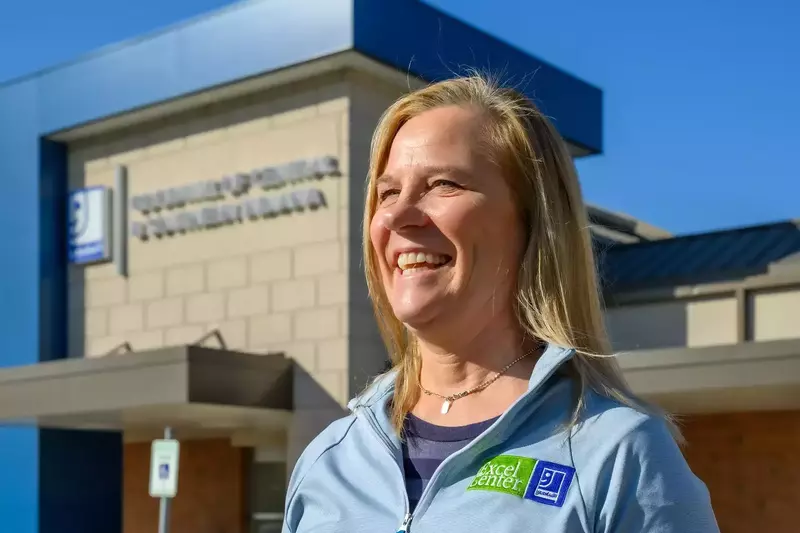
That’s where Notre Dame’s Wilson Sheehan Lab for Economic Opportunities (LEO) helped. LEO, an essential part of Notre Dame's new University-wide Poverty Initiative, is known for partnering with nonprofit organizations, service providers, and local governments—especially those dealing with poverty—to assess what programs work and what might not.
Patrick Turner, an associate research professor at LEO, detailed, “We partner research with the wonderful work being done with social service providers across the country. We bring in scientific evaluation methods to quantify the impact that they’re having on the lives of the clients that they serve, the clients who are experiencing homelessness or seeking job training or looking for a better life.”
Fué así que el Laboratorio Wilson Sheehan de Oportunidades Económicas de Notre Dame (LEO) entró a apoyar. El LEO es conocido por asociarse con organizaciones sin fines de lucro, proveedores de servicios y gobiernos locales -especialmente aquellos que lidian con la pobreza- para evaluar qué programas funcionan y cuáles podrían no funcionar.
Patrick Turner, profesor asociado de investigación en LEO, agregó: “Conectamos la investigación con el maravilloso trabajo que se realiza con proveedores de servicios sociales en todo el país. Aplicamos métodos de evaluación científica para cuantificar el impacto que tienen en las vidas de los clientes a los que atendemos, personas que están sin hogar o que buscan capacitación laboral o una vida mejor”.
The LEO team was asked to assess the efficacy of the Excel Centers. Using data from Goodwill and the state of Indiana, the team was able to compare those who enrolled in an Excel Center and graduated, to those who started the program but did not complete it, to those who applied but did not enroll. The team found that although there was a slight dip in students’ earnings while actively in the program, within five years, those who graduated were earning 40 percent more than their peers. In total, Turner said, graduates see more than an $80,000 increase in earnings throughout their lifetimes.
“There are 18 million adults in the US that don’t have a high school diploma, and we don’t know a lot about how to best serve folks and help them be successful in the labor market,” Turner said. “One of the exciting things about this research project is that we’'ve been able to show and highlight a highly successful program that does have a big impact on the lives of the students that they serve. That furthers my hope of being a force for good in this world, that we can share that information and help grow those programs and serve more people.”
That data generated quite a force. In Arizona, for example, the LEO researchers helped write a testimony based on their results. They included that the return on investment was a shocking $20 to $1. That led to a change in legislation to remove the age barriers for those seeking a high school education and included a substantial investment to build Excel Centers. The first Excel Center in Arizona opened its doors in September 2022.
Se pidió al equipo de LEO que evaluara la eficacia de los Centros Excel. Utilizando datos de Goodwill y del estado de Indiana, el equipo pudo comparar a quienes se inscribieron en un Centro Excel y se graduaron, con quienes comenzaron el programa pero no lo finalizaron, y con quienes presentaron la solicitud pero no se matricularon. El equipo descubrió que, si bien hubo una ligera caída en los ingresos de los estudiantes mientras estaban activamente en el programa, al cabo de cinco años, aquellos estudiantes que se graduaron ganaban un 40 por ciento más que sus compañeros. En total, declaró Turner, los egresados ven un aumento de más de $80,000 dólares en sus ingresos a lo largo de sus vidas.
“Hay 18 millones de adultos en Estados Unidos que no tienen un diploma de bachillerato, y no sabemos mucho sobre cómo apoyar mejor a las personas y ayudarles a tener éxito en el mercado laboral”, dijo Turner. “Uno de los aspectos más interesantes de este proyecto de investigación es que hemos podido mostrar y destacar un programa muy exitoso que tiene un gran impacto en las vidas de los estudiantes a los que está dirigido. “Eso refuerza mi esperanza de ser una fuerza para el bien en este mundo, de que podamos compartir esa información y ayudar a que esos programas crezcan y formen a más personas”.
Esos datos generaron una gran fuerza. En Arizona, por ejemplo, los investigadores de LEO ayudaron a redactar un testimonio basado en sus resultados. Incluyeron que el retorno sobre la inversión presentó una sorprendente relación de 20 a 1 dólares. Esto condujo a un cambio en la legislación para eliminar las barreras de edad para quienes buscaban una educación secundaria, e incluyó una inversión sustancial para la construcción de Centros Excel. El primer Centro Excel en Arizona abrió sus puertas en septiembre de 2022.
Thanks to Goodwill, and with support from Notre Dame, these graduates, along with countless more, now have access to a new future. (Photos: Lab for Economic Opportunities)
“Education is the No. 1 investment line in the state budget. Arizona was able to commit $12 million to the Excel Centers,” former governor Doug Ducey said. “What attracted me to the Excel Center model is that it allows equal opportunity for all. It says to someone that doesn’t have that high school diploma, that it’s attainable and there are people and support that will help you get there.”
Other states, including South Carolina, Kentucky, Missouri, and Arkansas, have also made noteworthy changes, and Goodwill hopes to have 85 operational Excel Centers by 2030.
“We’re also not just stopping there,” Turner said, highlighting that the partnership with Goodwill is ongoing. “There’s a number of people who apply to the school and never end up enrolling. There’s a number of people who start the school and don’t end up finishing. So I’m really excited about being able to work with the Excel Center to test interventions to help them better serve the students that come through their door so that more people can benefit from graduating and from earning their high school diploma.”
He noted ongoing work that is assessing the likelihood of graduation reducing the risk of engagement with the criminal justice system, which may further prove a big cost benefit to states. And he’s also keen to study the intergenerational impact of this program on the children of graduates, and whether graduation from the Excel Center makes it more likely for the next generation to graduate from high school, essentially breaking the cycle of intergenerational dropout.
The research gives credibility to what Goodwill is doing, Delgado said. “Now we can count ourselves as part of the 1 percent of nonprofits that have causal evidence and rigorous research behind what we do. What that does for you as an organization is, it builds confidence that you are truly doing what you say you’re going to do to help families really find their way out of poverty through education.”
“Notre Dame has been this huge blessing for us,” Delgado said. “We found the researchers, the economists at Notre Dame just to be the most amazing people.”
“La educación es la línea de inversión número 1 en el presupuesto estatal. “Arizona ha podido destinar 12 millones de dólares a los Centros Excel”, declaró el exgobernador Doug Ducey. “Lo que llamó mi atención sobre el modelo del Excel Center es que permite una igualdad de oportunidades para todas las personas. “Envía un mensaje a las personas que no tienen un diploma de escuela secundaria de que es posible lograrlo, y que hay personas y apoyos que les ayudarán a conseguirlo”.
Otros estados, incluyendo Carolina del Sur, Kentucky, Missouri y Arkansas, también han realizado cambios notables, y Goodwill espera tener 85 Centros Excel en para 2030.
“No nos detendremos ahí”, afirmó Turner, destacando que la alianza con Goodwill seguirá adelante. “Hay muchas personas que presentan su solicitud de ingreso a la escuela y nunca logran inscribirse. Hay varias personas que empiezan sus estudios y no los terminan. Estoy muy entusiasmado por poder trabajar con el Centro Excel para probar intervenciones que les ayuden a ofrecer un mejor servicio a los estudiantes que ingresan por sus puertas, para que más personas puedan beneficiarse de graduarse y obtener su diploma de bachillerato”.
Resaltó el trabajo en curso que evalúa la probabilidad de que la graduación reduzca el riesgo de ingresar al sistema de justicia penal, lo que puede representar además un gran beneficio en términos de costos para los estados. También está muy interesado en estudiar el impacto intergeneracional de este programa en los hijos de los egresados, y si la graduación del Excel Center aumenta la probabilidad de que la próxima generación se gradúe del bachillerato, rompiendo esencialmente el ciclo de deserción intergeneracional.
La investigación brinda credibilidad a lo que hace Goodwill, sostuvo Delgado. “Ahora podemos considerarnos parte del 1 por ciento de organizaciones sin fines de lucro que contamos con evidencia causal e investigación rigurosa que respaldan lo que hacemos. Lo que eso hace por ustedes como organización es generar confianza en que realmente están haciendo lo que dicen que van a hacer para ayudar a las familias a encontrar la manera de salir de la pobreza a través de la educación”.
“Notre Dame ha sido una gran bendición para nosotros”, dijo Delgado. “Descubrimos que los investigadores y economistas de Notre Dame son personas realmente extraordinarias”.
Credits
- Writer: Tara Hunt McMullen
- Photographers: Matt Cashore and Barbara Johnston
Créditos
Escritor: Tara Hunt McMullen
Fotos: Matt Cashore y Barbara Johnston
